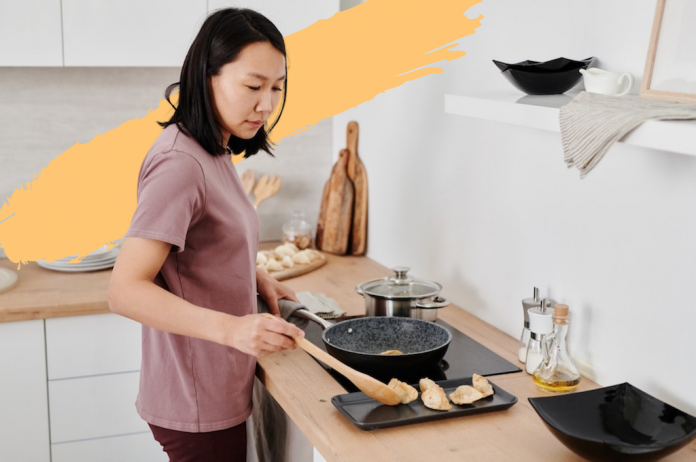UK house prices are rocketing. According to Nationwide’s House Price Index, house price growth in February 2022 grew by 12.6% year on year (£29,000), up 1.7% on January.
HM Land Registry’s January figures paint a similar picture, with UK prices rising by 9.6% annually to an average price of £273,762.
And with rising inflation predicted to drive up house prices further, if you’re looking to get a foot on the property ladder in the coming months or years, you might be feeling a little despondent.
Whether you’re a first-time buyer or an established homeowner looking to up or downsize, what do these ballooning figures mean for your purchasing prospects? Here are 5 things to keep in mind.
Fewer Options
With fewer people willing to move due to rampant inflation, geopolitical strife, and the lingering effects of the pandemic, there are fewer properties entering the market.
Those that are added are therefore snapped up just as quickly as before, even when considering the reduced number of buyers. It also means those that are selling can raise their prices to capitalise. It’s a seller’s market, make no mistake.
This effect can be seen particularly well in more rural and suburban areas where families and remote workers are engaged in a ‘race for space’ owing to familiar shared experiences with a sense of claustrophobia and clutter brought on by the pandemic.
Bigger Deposits
With higher prices come larger deposits, with this particularly affecting first-time buyers who don’t have a ready cushion of equity to use for their purchase.
Rather than 10%, many lenders are now asking for people to front a 15% deposit or more for their home due to economic uncertainty and the spectre of rising inflation. Additionally, pandemic saving has allowed many buyers to save up much larger deposits than before, leading some lenders to beef up their lending criteria.

Your Credit Score Has Never Mattered More
With the cost of living crisis further impacting already struggling finances, banks are currently weary of lending to those without a proven track record of fiscal responsibility.
Your credit score, more than any other factor, is the way you prove that you have a handle on your finances, and has a significant impact on your mortgage decision, so you should understand how it works and how you can improve it.
Download a free credit checker, such as Credit Karma or Experian, as these can provide you with further information on your credit score, as well as being able to see your credit history, and even suggestions on how to improve it.
You can always use a few different apps and see how your score lines up. Your credit score and report are what a mortgage lender will see when they process your application, so you want to make sure it looks good, as part of the decision process will hinge on this.
Read: The IDEAL guide to getting to grips with your credit score
Expert Help Has Never Been More Valuable
Now more than ever it’s important to have a strong legal and financial team helping you with your purchase, as certain loopholes have closed for the first time buyers whilst, simultaneously, new avenues of assistance have also been made available.
With experts by your side, you can ensure you’re getting a fair price and with all the government help you’re entitled to, without delays or disputes in the process.
For instance, before the sale goes through, a mortgage broker can help you find the least expensive deals for your financial circumstances. Speaking to a mortgage broker is a smart choice when you’re looking to buy a house as they will be able to level with you and inject a much-needed sense of realism into how long it’s going to take you and just what level of savings are going to be needed.
A good estate agent can speed up your application and ensure that you’re not caught in a chain, should you wish to avoid one – or sell your home quicker so you’re able to house hunt with greater certainty. Lastly, conveyancing solicitors are crucial to getting the property signed correctly into your name, as well as answering any questions you might have about the purchase process.

Help Is Available
You may find that you’re able to utilise the UK government’s Help to Buy scheme, which in some cases can allow you to buy a property that is worth more, even if you don’t have enough of a deposit already saved up.
In April 2021, the UK government announced the mortgage guarantee scheme. This scheme helped potential buyers and investors secure a mortgage for their property purchase with just a 5% deposit. On top of that, a stamp duty holiday has been extended until the 31st December 2022.
Another potential avenue to buying your own house with a reduced deposit is through shared ownership. This allows you to buy a share of a property (usually between 10% and 75%) and pay rent on the remaining share. You can then increase your share gradually, which is known as staircasing.
The main advantage of shared ownership is the smaller deposit requirement. That said, you will have to pay all of the maintenance on the property, even if you own a low percentage of it.
The Bottom Line
Though it’s been an unprecedented couple of years, both in terms of record breaking house prices and extraordinary global tumult, it is still possible to get a stronghold – or, at least, a tentative clasp – on the housing market. Good luck in your search and we’ll see you on the property ladder?





